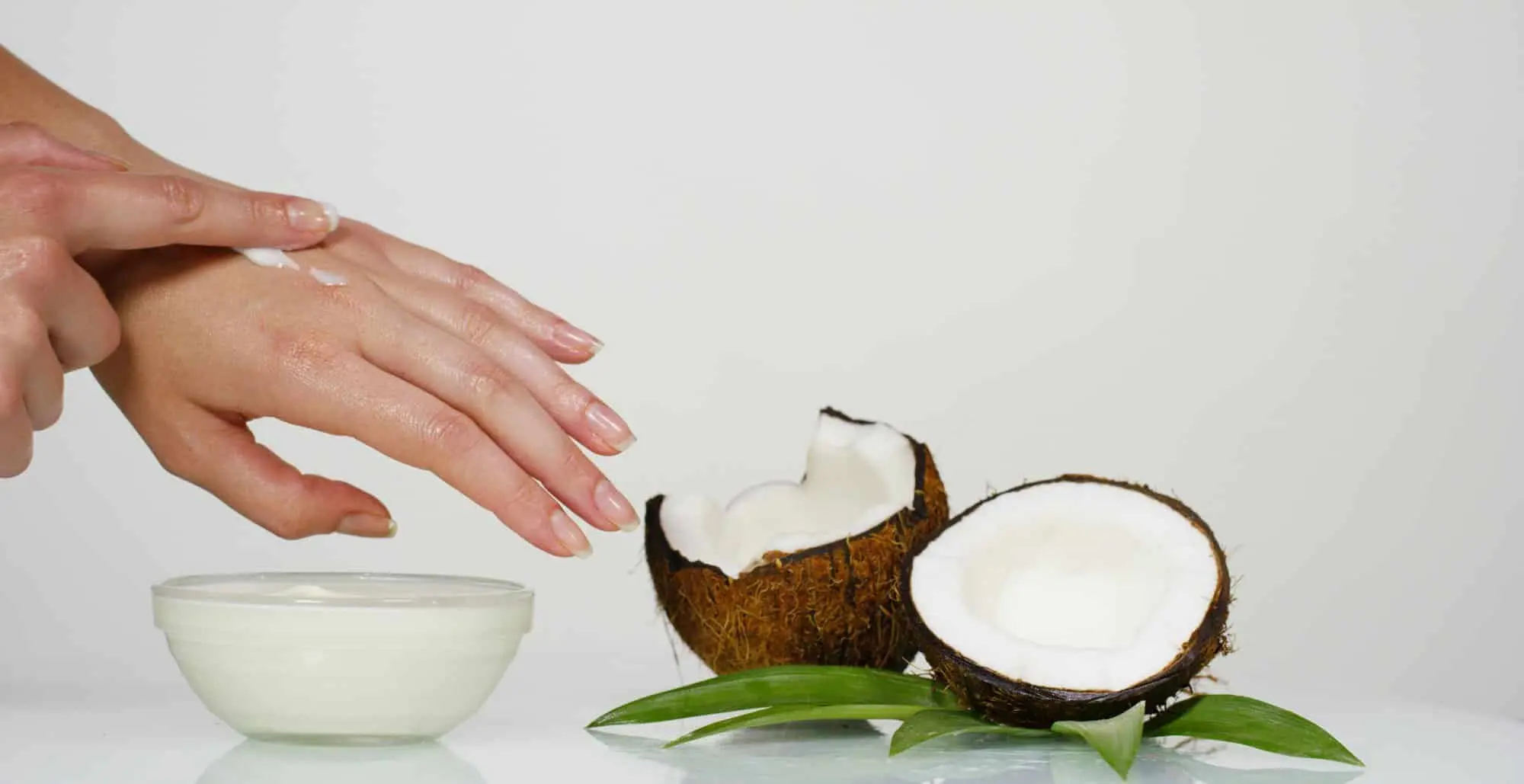Introduction to Coconut Oil
Coconut oil is extracted from the kernel or meat of mature coconuts harvested from the coconut palm (Cocos nucifera). It has been used for centuries in traditional medicine and skincare practices in tropical regions where coconuts are abundant. Coconut oil is composed mainly of saturated fats, including lauric acid, which gives it unique properties that may benefit the skin.
Composition of Coconut Oil
Coconut oil contains several fatty acids, including:
Lauric Acid: A medium-chain fatty acid with antimicrobial properties.
Caprylic Acid: Another medium-chain fatty acid known for its antimicrobial and anti-inflammatory properties.
Capric Acid: Similar to lauric acid, capric acid has antimicrobial properties.
Linoleic Acid: An omega-6 fatty acid that helps maintain the skin’s barrier function.
These fatty acids, along with other components like vitamin E and polyphenols, contribute to coconut oil’s potential skincare benefits.
Potential Benefits of Coconut Oil for Skin
Moisturizing
Coconut oil is an effective emollient that helps soften and hydrate the skin, making it suitable for dry or rough areas.
Antimicrobial Properties
Lauric acid and other fatty acids in coconut oil have antimicrobial properties, which may help reduce the risk of bacterial or fungal skin infections.
Anti-Inflammatory Effects
Some studies suggest that coconut oil may help reduce inflammation and soothe irritated or inflamed skin, making it potentially beneficial for conditions like eczema or psoriasis.
Barrier Repair
Coconut oil contains fatty acids that can help repair the skin’s natural barrier function, protecting it from environmental damage and preventing moisture loss.
Anti-Aging Effects
The antioxidants in coconut oil, such as vitamin E, may help protect the skin from oxidative stress and free radical damage, potentially reducing the signs of aging.
Practical Uses of Coconut Oil in Skincare
Coconut oil can be used in various ways as part of your skincare routine, including:
Moisturizer
Apply coconut oil directly to the skin as a moisturizer, especially on dry or rough areas like elbows, knees, and heels.
Makeup Remover
Use coconut oil as a natural makeup remover by applying it to a cotton pad and gently wiping away makeup.
Hair Treatment
Massage coconut oil into the scalp and hair as a conditioning treatment to moisturize and nourish dry or damaged hair.
Lip Balm
Apply a small amount of coconut oil to the lips to moisturize and soothe dry, chapped lips.
Body Scrub
Mix coconut oil with sugar or salt to create a natural exfoliating scrub to remove dead skin cells and reveal smoother, softer skin.
Potential Drawbacks and Side Effects of Coconut Oil
While coconut oil may offer benefits for many individuals, it’s not suitable for everyone, and some people may experience adverse reactions, including:
Comedogenicity
Coconut oil is considered highly comedogenic, meaning it can clog pores and exacerbate acne for some individuals, especially those with oily or acne-prone skin.
Allergic Reactions
Although rare, some people may be allergic to coconut oil and may experience allergic reactions, such as itching, redness, or hives.
Sensitivity
Coconut oil may cause skin irritation or sensitivity in some individuals, particularly if applied to broken or inflamed skin.
FAQs about Coconut Oil for Skin
Is coconut oil suitable for all skin types?
Coconut oil may benefit individuals with dry or normal skin types but can be comedogenic and potentially exacerbate acne in those with oily or acne-prone skin.
Can coconut oil be used as a sunscreen?
While coconut oil has a low sun protection factor (SPF) of around 4-5, it’s not a reliable substitute for sunscreen. It may provide some protection against UV radiation but should not be relied upon as the sole form of sun protection.
Can coconut oil help fade scars or stretch marks?
Some anecdotal evidence suggests that coconut oil may help improve the appearance of scars or stretch marks by moisturizing the skin and promoting collagen production. However, scientific evidence supporting these claims is limited.
Can coconut oil be used on the face?
Coconut oil can be used on the face, but individuals with oily or acne-prone skin should use caution, as it may exacerbate acne or clog pores. Patch testing on a small area of skin is recommended before applying coconut oil to the face.
Is refined or unrefined coconut oil better for the skin?
Unrefined, virgin coconut oil retains more of its natural antioxidants and nutrients, making it potentially more beneficial for the skin compared to refined coconut oil, which undergoes processing that may remove some of these beneficial compounds.
Can coconut oil be used to treat fungal infections like athlete’s foot?
Coconut oil’s antimicrobial properties may help inhibit the growth of fungi responsible for conditions like athlete’s foot. However, more research is needed to determine its efficacy as a standalone treatment for fungal infections.
Can coconut oil be used on sensitive skin?
Individuals with sensitive skin should perform a patch test before using coconut oil on larger areas of the body, as it may cause irritation or allergic reactions in some individuals. If irritation occurs, discontinue use and consult a healthcare professional.
Conclusion
Coconut oil can be a beneficial addition to your skincare routine, offering potential moisturizing, antimicrobial, and anti-inflammatory effects. However, it’s essential to use coconut oil judiciously and be mindful of potential drawbacks, such as its comedogenicity and potential for causing skin irritation. As with any skincare product, it’s best to perform a patch test and consult with a dermatologist if you have any concerns or underlying skin conditions. With proper use and precautions, coconut oil can be a versatile and natural option for maintaining healthy, hydrated skin.





